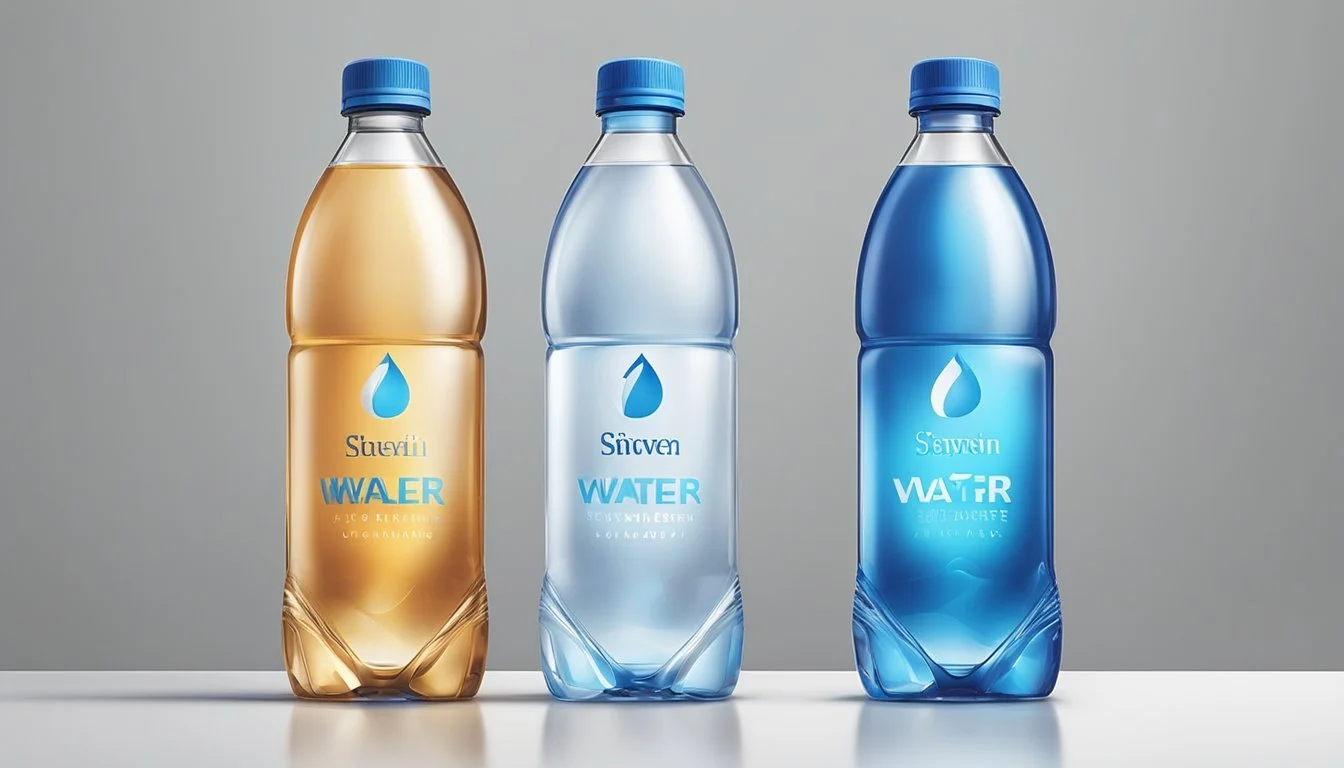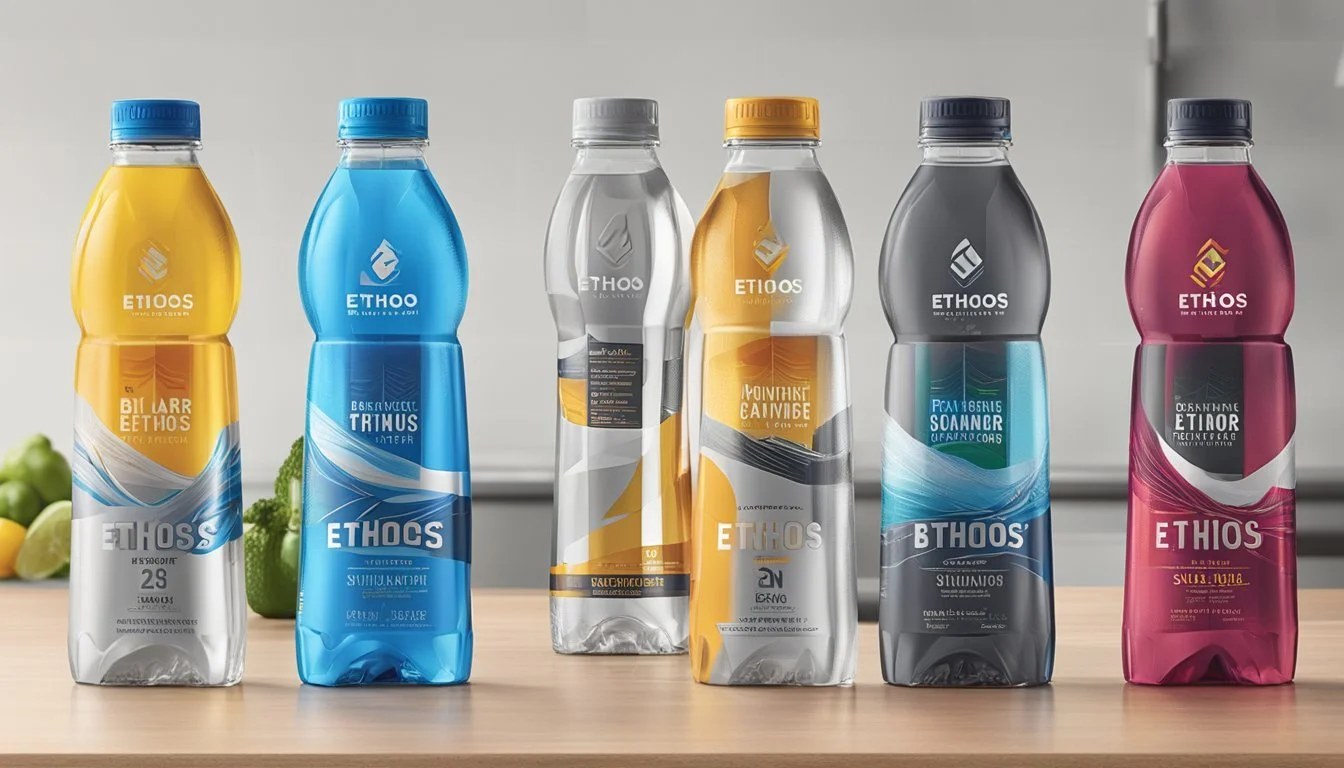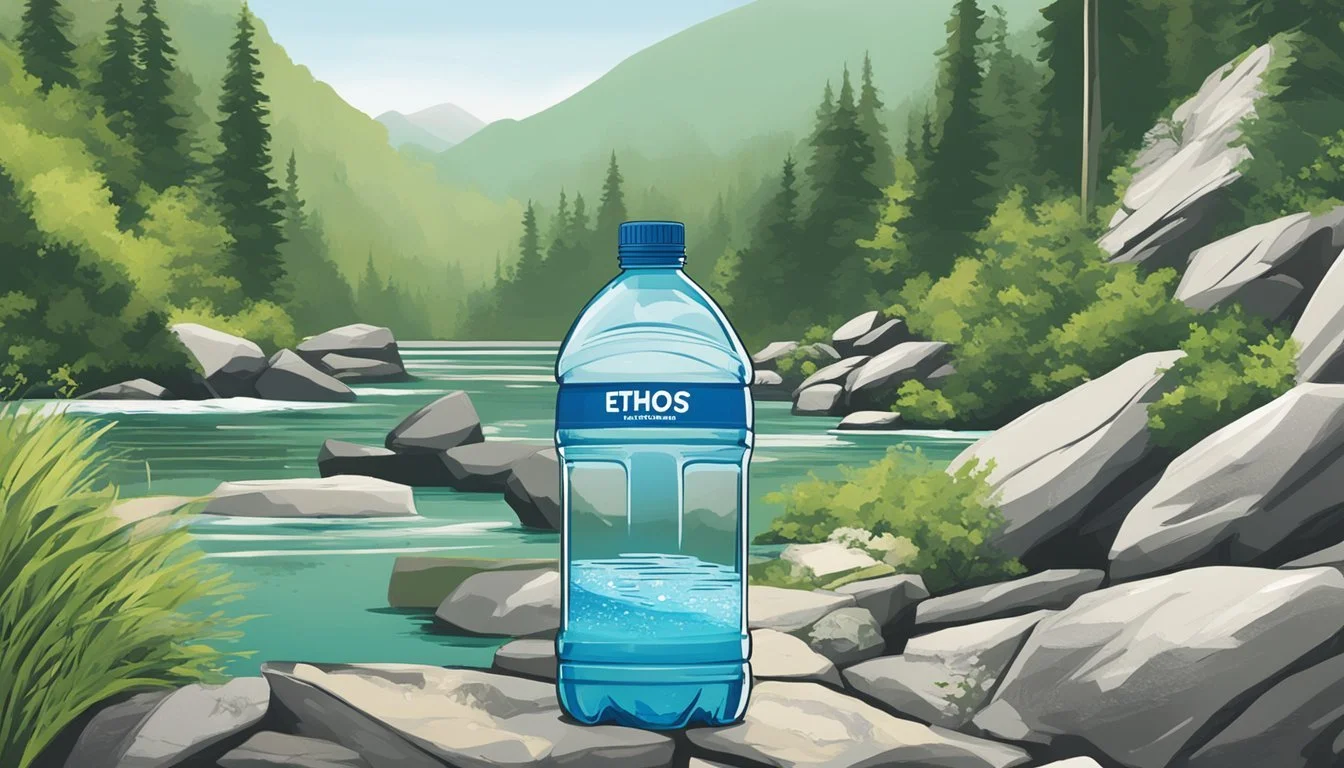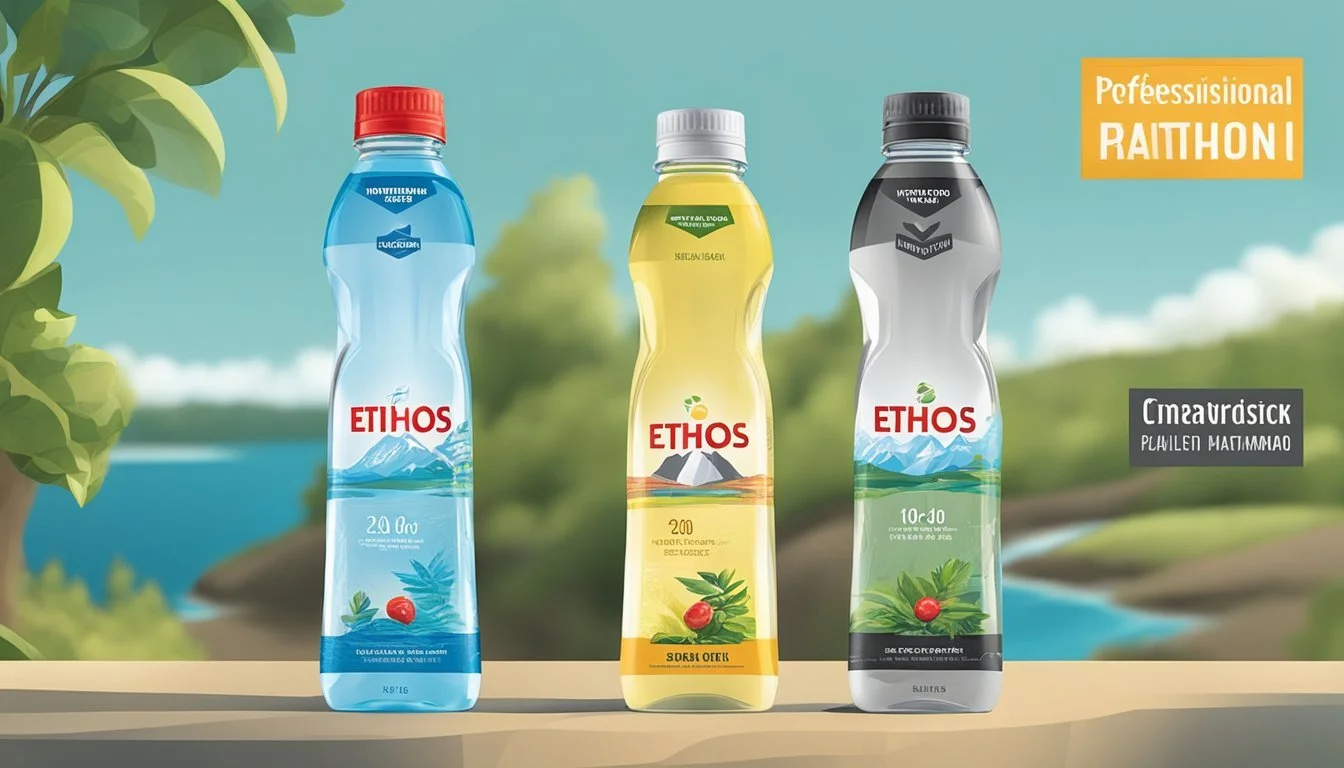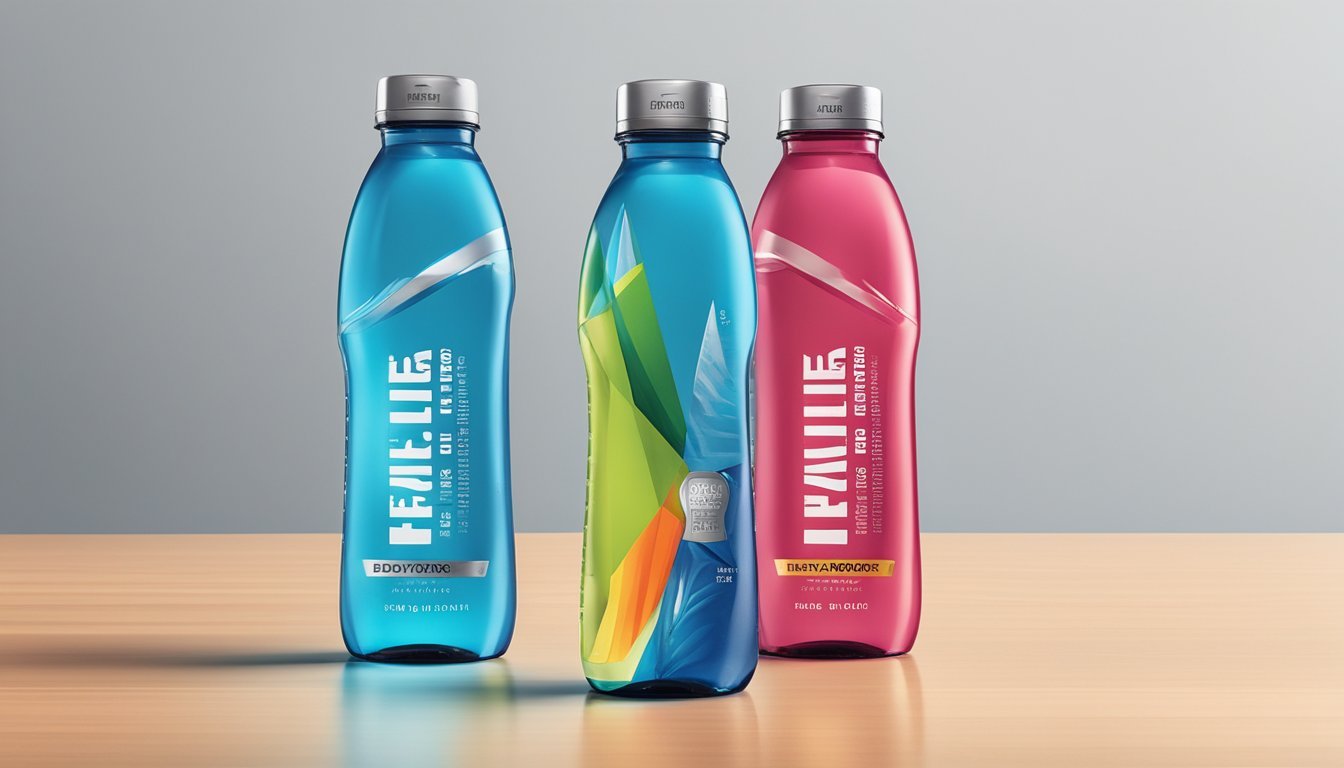Ethos vs. BodyArmor
Which Bottled Water Offers Superior Quality?
When it comes to choosing the best bottled water, many consumers find themselves comparing Ethos and BodyArmor. Ethos stands out for its commitment to sustainability and charitable contributions, making it a popular choice for socially conscious consumers. This brand uses recyclable bottles and actively supports clean water initiatives, creating a positive impact beyond merely quenching thirst.
BodyArmor, on the other hand, promotes its water as being ultra-purified and rich in electrolytes, catering to those who prioritize hydration and performance. The brand's emphasis on providing a product that supports athletic recovery and overall wellness differentiates it from many standard bottled waters on the market.
For those who value environmental impact and social responsibility, Ethos is the better choice. For those seeking enhanced hydration and performance benefits, BodyArmor provides a superior option. This comparison sets the stage for a deeper exploration into what makes each brand unique and which might be the right fit for your lifestyle needs.
Understanding Ethos and BodyArmor
Ethos and BodyArmor are two distinct bottled water brands, each bringing unique qualities and market positions. They cater differently to consumer preferences, emphasizing health, sustainability, and social impact.
Brand Background
Ethos Water is a social impact brand owned by Starbucks. Launched in 2003, it was created with the mission to help raise awareness and funds for clean water initiatives around the world. Ethos appeals to socially conscious consumers who value environmental sustainability and charitable contributions.
BodyArmor SportWater Alkaline Water is a product under the BodyArmor brand, which is well-known for its sports drinks. BodyArmor emphasizes hydration and performance, appealing to athletes and fitness enthusiasts. The water is alkaline, boasting a pH level of 9+, and includes added electrolytes to enhance hydration.
Ethos Water Profile
Ethos Water focuses on using recyclable materials for its packaging, reflecting the broader industry trend towards sustainability. The brand markets itself as a way to make a difference, with a portion of its profits directed towards clean water projects globally. This charitable aspect is a significant selling point, appealing to customers who wish to contribute to positive social change through their purchases.
Key Points:
Owned by Starbucks
Part of proceeds go to clean water initiatives
Recyclable bottles
Targets socially conscious consumers
BodyArmor SportWater Profile
BodyArmor SportWater Alkaline Water is crafted for performance, containing electrolytes and boasting a pH level of 9+, which supports quicker and more efficient hydration. This water is suited for athletes, with promises of enhanced hydration and performance. BodyArmor is marketed as an essential part of an athlete's routine, and its alkaline formulation differentiates it from other waters.
Key Points:
Marketed for athletes and fitness enthusiasts
pH level of 9+
Added electrolytes for better hydration
Focus on performance and recovery
Water Sourcing and Environmental Impact
Both Ethos and BodyArmor take distinct approaches to sourcing their water and mitigating environmental effects. This influences not only the quality and purity of the water but also its ecological footprint.
Sources of Water
Ethos sources its water from various locations around the world, including groundwater and natural springs. This diverse sourcing aims to provide clean drinking water while supporting global water initiatives. In contrast, BodyArmor primarily sources its water from mountain springs, focusing on purity and mineral content.
The careful selection of water sources is crucial for maintaining high quality. Ethos and BodyArmor both emphasize the importance of clean, natural water.
Sustainability and Eco-Friendliness
Ethos places a strong emphasis on being carbon neutral. The brand uses plastic bottles, raising concerns about BPA presence and recyclability. Owned by Starbucks, Ethos claims a part of its proceeds contributes to clean water projects, making it a choice for environmentally conscious consumers.
BodyArmor, on the other hand, works to minimize its environmental impact through eco-friendly packaging and practices. They use BPA-free bottles and seek to reduce their carbon footprint by enhancing recycling efforts. Further, BodyArmor often promotes the sustainability of tapping natural sources like springs.
In summary, consumers choosing between Ethos and BodyArmor must weigh the importance of source purity against environmental responsibilities.
Composition of Bottled Water
Comparing Ethos and BodyArmor bottled water requires examining their pH level, electrolyte content, and the specific ingredients they contain. These factors play a significant role in hydration and the overall quality of the water.
PH Level and Alkalinity
Ethos and BodyArmor bottled waters differ in their pH levels and alkalinity. Ethos Water typically has a balanced pH level around neutral, making it suitable for everyday hydration. BodyArmor Sport Water, on the other hand, aims for a higher pH level, often above 8, to provide alkaline water benefits. However, some tests noted that BodyArmor did not consistently meet this alkaline promise.
Higher pH levels in bottled alkaline waters like BodyArmor are believed to help balance the body’s pH. While the precise benefits are still debated, consumers often prefer alkaline water for its potential to reduce acid in the bloodstream. Smartwater Alkaline, another competitor, maintains a pH of 9+, further illustrating the variability in pH levels among bottled waters.
Electrolyte and Mineral Content
Both Ethos and BodyArmor contain electrolytes, but their specific compositions vary. BodyArmor Sport Water includes a blend of sodium, potassium, and magnesium to support hydration, particularly beneficial during and after physical activities. These electrolytes help maintain fluid balance, muscle function, and energy levels.
Ethos Water, while also containing essential minerals, places more focus on the basic hydration needs. It may include minerals like calcium chloride and magnesium chloride, which can enhance the taste and contribute to the body's electrolyte balance.
Differences in electrolyte content can influence hydration effectiveness. For example, potassium bicarbonate in BodyArmor aids in replenishing electrolytes lost through sweat, making it a popular choice among athletes.
Ingredients and Additives
The ingredients and additives in Ethos and BodyArmor affect both the taste and health benefits of the waters. Ethos Water typically prides itself on its simplicity, using mostly natural spring water with minimal additives. This makes it an appealing option for consumers seeking a pure, clean water source.
BodyArmor Sport Water incorporates natural flavors and additional electrolytes. It is often flavored with real fruit juice and natural ingredients, enhancing both the taste and the rehydration experience.
Ethos, meanwhile, avoids artificial additives, emphasizing a more straightforward hydration approach. This contrast highlights the balance between natural simplicity and enhanced functionality in bottled water options.
In conclusion, when considering Ethos and BodyArmor, focus on their pH levels, electrolyte content, and ingredients to choose the best option for hydration and personal preference.
Health and Hydration Benefits
Ethos and BodyArmor both offer unique hydration and health benefits. These advantages are particularly significant for athletes and general consumers seeking to improve their overall well-being.
Hydration for Athletes
BodyArmor provides specialized hydration through its SportWater, which contains added electrolytes. Electrolytes play a critical role in maintaining fluid balance, especially after intense physical activity. Athletes benefit from these added minerals as they help prevent dehydration and muscle cramps.
Ethos offers a simpler composition without added electrolytes. Its primary focus is on providing clean, filtered water. The absence of additives makes it a straightforward option for those who prefer a more natural hydration source.
High pH levels in BodyArmor's SportWater (over 9) may aid athletes by neutralizing acidity in the body. However, actual pH levels were sometimes lower than advertised. Despite this, the underlying electrolyte content remains beneficial for athletic performance.
General Health Advantages
Mineral content in water can have additional health benefits. Ethos contains essential minerals like calcium and magnesium. These minerals support bone health and metabolic functions, crucial for overall well-being.
BodyArmor offers a more alkaline option, potentially beneficial for those looking to offset dietary acidity. Alkaline water may contribute positively to metabolic processes and general health, though these benefits are subject to individual needs.
Both brands prioritize hydration, with Ethos focusing on purity and BodyArmor on alkalinity and added electrolytes. This distinction allows consumers to choose based on personal health goals, whether they seek simple hydration or added health benefits.
Flavor and Water Taste
Ethos and BodyArmor bottled waters differ significantly in taste due to their distinct sources and processing methods. This section dissects the specific taste profiles of each brand, highlighting the elements that set them apart.
Comparing Taste Profiles
Ethos Water boasts a smooth, clean taste, sourced from natural springs. It aims to provide a pure and refreshing hydration experience. The overall mouthfeel is light with no lingering after-taste, making it suitable for those seeking a straightforward hydration experience.
BodyArmor Water offers a unique flavor derived from its proprietary filtration, often compared to Smartwater. The water tastes crisp and clean with a slight mineral hint, thanks to its added electrolytes. This subtle mineral taste appeals to individuals looking for enhanced hydration benefits during sports and physical activities.
Packaging and Accessibility
Ethos Water and BodyArmor have distinct approaches to their packaging and accessibility, aimed at reaching environmentally conscious consumers and ensuring ease of purchase.
Bottle Design and Portability
Ethos Water features bottles made from recyclable materials. They emphasize sustainability and are often associated with Starbucks, aligning with the chain's eco-friendly image. Ethos promotes BPA-free packaging, appealing to health-conscious individuals.
BodyArmor, on the other hand, offers sleek, sport-themed bottles designed for easy grip during activities. Their bottles also claim to be BPA-free, adding to their appeal. While not focused solely on sustainability, their design efficiency caters well to active lifestyles.
Retail Availability and Price Point
Ethos Water is primarily found at Starbucks locations, adding a level of exclusivity. It's marketed towards consumers willing to pay a premium for charitable and environmental benefits. Prices might be higher compared to more generic brands due to this exclusivity.
BodyArmor boasts wide availability, found in various retail stores, supermarkets, and online platforms. This broad distribution makes it accessible to a larger audience. Price-wise, BodyArmor is positioned competitively, making it an accessible option for those looking for functionality without premium pricing.
Comparative Analysis
When comparing Ethos and BodyArmor bottled water, it is essential to evaluate based on factors including ingredient composition, packaging sustainability, and consumer perceptions. The analysis will help in understanding which brand offers better quality and value for consumers.
Criteria for Evaluation
Ethos and BodyArmor have distinct characteristics that set them apart. Ethos emphasizes its mission through charitable contributions to clean water initiatives. Ethos bottles are recyclable, aligning with environmental trends. This brand utilizes purified water, aiming for quality and purity.
BodyArmor offers enhanced water with added electrolytes like sodium, potassium, and magnesium, catering to active individuals. It includes natural flavors and real fruit juice, distinguishing it from basic purified options. Packaging also focuses on sustainability but without the strong charitable angle of Ethos.
Market Perception and Consumer Preferences
Ethos is widely perceived as a socially responsible choice, appealing to consumers who prioritize sustainability and social contribution. The brand garners positive attention due to its mission-driven approach and recyclable packaging.
BodyArmor, however, appeals to health-conscious and active consumers who seek hydration with added benefits. Its marketing focuses on performance and natural ingredients, which resonates well with athletes and fitness enthusiasts. The inclusion of real fruit juice and multiple electrolytes sets it apart from typical bottled water options.
Both brands have strong followings but cater to different market segments based on their unique offerings and brand messages.
Health Considerations and Safety
When comparing Ethos and BodyArmor bottled water, it's essential to evaluate their purity, potential contaminants, and compliance with standards. These factors are vital to determining which brand ensures better health safety.
Purity and Contaminants
Ethos Bottled Water:
Ethos water is sourced from protected springs and undergoes filtration to remove impurities.
Contaminants: Recent studies highlight the presence of nanoplastics in bottled waters, including Ethos, with potential health implications.
BodyArmor Bottled Water:
Filtration and Purification: BodyArmor claims a rigorous purification process that includes reverse osmosis and microfiltration.
Nanoplastics: As seen with many bottled water brands, BodyArmor might also contain nanoplastic particles, though specific data is limited.
Clearly identifying and mitigating contaminants such as nanoplastics and ensuring high purity levels is crucial for consumer health. Quality filtration and purification processes are central to achieving this.
Certifications and Standards Compliance
Ethos Certifications:
Ethos complies with FDA regulations for bottled water.
The company emphasizes sustainable practices and uses recyclable materials, indirectly reducing potential chemical leaching.
BodyArmor Certifications:
BodyArmor is FDA-approved and adheres to industry standards for bottled water.
The brand also follows specific safety protocols in its bottling operations, ensuring consumer trust.
Both brands aim to meet regulatory standards, providing a baseline of safety. Certifications from recognized bodies like the FDA offer additional assurance of safety and quality. This commitment to standards helps establish trust with health-conscious consumers.
Conclusion
Ethos and BodyArmor offer distinct qualities in the bottled water market.
Ethos Bottled Water emphasizes its commitment to global clean water initiatives. Consumers who value sustainability and charitable contributions might find Ethos appealing. The water is sourced with attention to environmental impact, making it a conscientious choice.
BodyArmor Sport Water caters to those looking for hydration support during physical activities. With added electrolytes such as sodium, potassium, and magnesium, it helps maintain optimal hydration levels, especially for athletes. The natural flavors and real fruit juice ingredients add a refreshing twist.
Key Points
Ethos: Focuses on sustainability and clean water initiatives.
BodyArmor Sport Water: Targets athletes with added electrolytes for hydration.
Packaging & Sustainability
Both brands use recyclable materials.
Taste
Ethos offers pure, reliable water.
BodyArmor includes natural flavors, enhancing the drinking experience.
Customers can choose based on their priorities: sustainability and charity with Ethos or athletic hydration with BodyArmor. Both options provide quality bottled water with unique benefits.
More About Ethos
Ethos vs Mountain Valley Spring Water: Which Bottled Water is Better?
Ethos vs Richard's Rainwater: Which Bottled Water is Better?
Ethos vs Whole Foods Italian Still Mineral water: Which Bottled Water is Better?
More About BodyArmor
BodyArmor vs Kirkland Signature: Which Bottled Water is Better?
Cascade Mountain vs BodyArmor: Which Bottled Water is Better?
Hawaii Volcanic vs BodyArmor: Which Bottled Water is Better?
Hawaiian Springs vs BodyArmor: Which Bottled Water is Better?
Icelandic Glacial vs BodyArmor: Which Bottled Water is Better?
Mountain Valley Spring Water vs BodyArmor: Which Bottled Water is Better?
Nestle Pure Life vs BodyArmor: Which Bottled Water is Better?
Richard's Rainwater vs BodyArmor: Which Bottled Water is Better?
Solan de Cabras vs BodyArmor: Which Bottled Water is Better?
Talking Rain AQA vs BodyArmor: Which Bottled Water is Better?
Whole Foods 365 vs BodyArmor: Which Bottled Water is Better?
Whole Foods Italian Still Mineral water vs BodyArmor: Which Bottled Water is Better?

